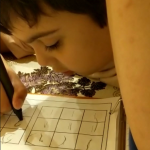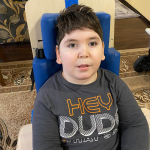How to Teach an Autistic Person to Take Medication
Taking medication can be a challenging task for children with autism. It is important to understand each child’s unique needs in order to teach them to take medication without fear or anxiety. Parents can achieve this by taking gradual steps, using visual cues, and applying reinforcement techniques.
Children with autism often have difficulties related to sensory overload and understanding instructions. At the same time, the use of medication is an important part of managing symptoms. It’s necessary to understand what exactly causes the resistance to medication therapy in individuals with autism.
- Some children are reluctant to take pills or fear injections due to the presence of anxiety disorders. However, with proper support, these children can learn coping strategies, which will help reduce their anxiety levels.
- Taking medication may also be perceived as a change in their usual routine—a common cause of stress.
- People with autism often have heightened sensitivity to tastes and smells because they perceive the world differently. What may seem normal to most people could cause extreme reactions in these children. In other words, an ordinary medicine might have an unpleasant taste for them.
- Difficulty swallowing pills is related to the fact that swallowing is a complex process requiring coordinated movements of the tongue, soft palate, and esophagus. Many children with autism have motor difficulties, and some may simply be unable to swallow anything when they don’t want to.
- Fear of injections is related to phobias. Children often fear needles, but for those with autism, this fear can provoke extreme anxiety.
If a child can swallow foods such as oatmeal or thick apple puree without gagging or choking, they can be taught to take oral medication. At the age of 6-7 years, most children have developed motor skills, can focus their attention, and understand what they are told. However, in children with autism, these abilities may take longer to develop. Therefore, such a child should be gradually trained, starting with giving them water to help them understand what to do when asked to drink. Next, small candies can be used, gradually increasing their size. Care should be taken to ensure the child doesn’t choke.
“Introducing” liquids should begin with a small amount of water or juice, and it’s advisable to consult with healthcare professionals on how to mask the taste. Fear of syringes can diminish if the child is allowed to play with it, after removing the needle, of course—this way, the child will start reacting calmly to it. It may also help to model taking medicine by having parents do so. And, of course, in all cases, children should be rewarded when they show no fear or resistance.
It is clear that getting a child accustomed to medication treatment is quite challenging. In this context, a modern, safe, and highly effective procedure plays a crucial role in alleviating or even completely eliminating autism symptoms. Today, only cell therapy is capable of achieving this, as it has become a widely recognized method for combating autism spectrum disorders.
Cell therapy involves stem cell transplantation, which has the unique ability to transform into any other cells that make up organs and tissues. This process replaces defective cells, leading to a rapid and long-term normalization of brain and nervous system functions.
The benefits of cell therapy have been highly appreciated in the best clinics around the world, including the Mardaleishvili Medical Center. Here, highly qualified doctors with extensive successful experience work with state-of-the-art equipment, and additional advantages include more affordable services compared to other countries, as well as assistance with travel planning, accommodation, and other related matters.
Cell therapy can solve problems related to taking medication!
Autism Treatment Center Videos
Autism treatment with own stem cells
Cord blood association congress
International Quality Crown
Autism Treatment Reviews
Autism treatment with own stem cells
The story of Alessandro (6 years old)
Autism Patient Testimonial - Stem Cell Treatment
Clients Testimonials

Feedback from Igor, David’s father (12 years old) Read More

Feedback from Olga, Fedya’s mother Read More

Feedback from Natalia, Radomir’s mother (15 years old) Read More

Feedback from Esther, Samuel’s mother (8 years old) Read More

Feedback from Abibe, Selim’s mother (7 years old) Read More












